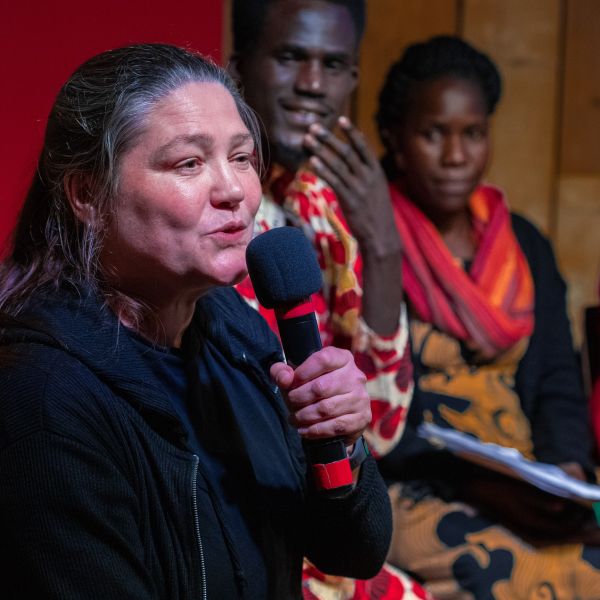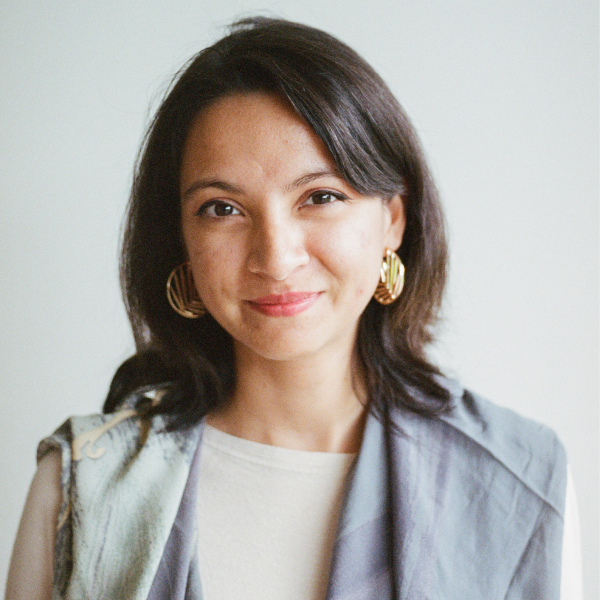The personal journey of Elizabeth Spehar: UN’s role in peacebuilding
In an era where global conflicts and crises dominate the headlines, the role of international organizations like the United Nations (UN) in promoting peace has never been more crucial. Elizabeth Spehar, UN Assistant Secretary-General for Peacebuilding Support, offers a unique perspective on the complex and challenging work of peacebuilding. During her recent visit to The Hague for high-level meetings, Spehar was eager to share her personal journey during a Fireside Peace Chat organised by The Hague Humanity Hub, KPSRL and LUC.
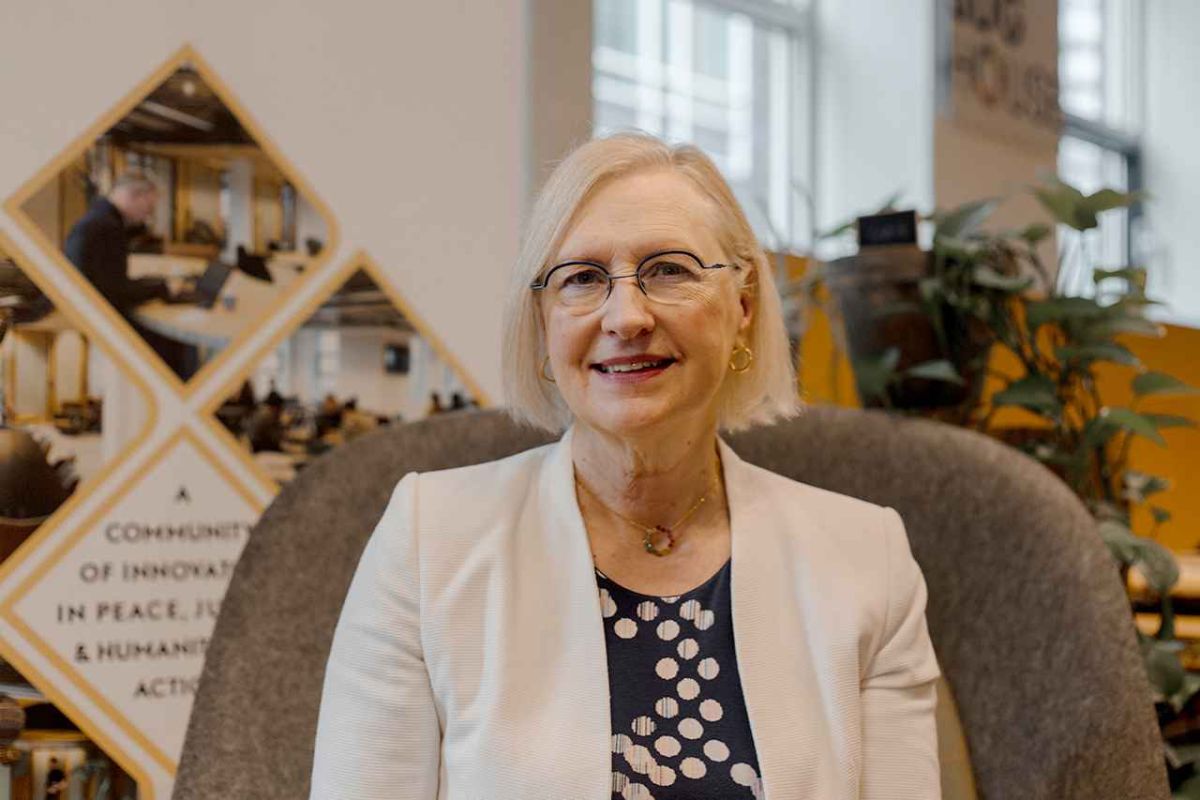
Visiting communities where UN programs work in practice and seeing people’s lives can be affected positively is very energizing.
Text and photography by Sacha Celine Verheij
When asked to describe herself, Elizabeth Spehar reflects on her background and commitment to peace. “I am Canadian, although my parents are originally from Croatia. I am a mother, I have a daughter. I am a proud peacebuilder. I am UN,” she states. As the UN Assistant Secretary-General for Peacebuilding Support, Spehar’s work is driven by a profound desire to create positive change, even in the most challenging circumstances. “I am driven by wanting a better world,” she explains. “Visiting communities where UN programs work in practice and seeing people’s lives can be affected positively is very energizing.”
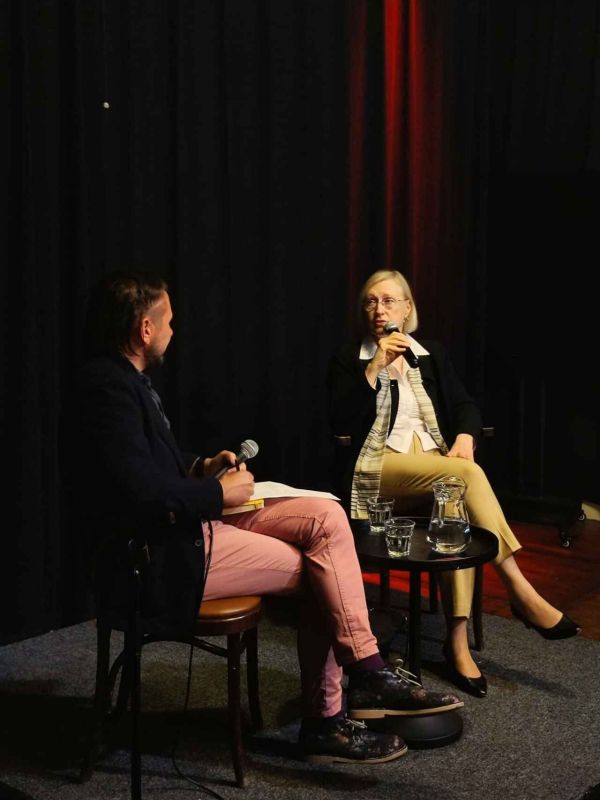
Connecting local communities with global mechanisms
One of the critical challenges in peacebuilding, according to Spehar, is bridging the gap between global mechanisms and local communities. “It’s not easy,” she admits. “When you’re in New York in the Security Council or Peacebuilding Commission, you can feel very removed. But there is something to be said for what’s going on in New York because that really does set the tone. At the end of the day, when 193 member states come together, it can be very powerful. We need that!”
We imbue our peace work through the lens of localization.
However, the key to effective peacebuilding lies in what she describes as "localization". Spehar emphasizes the importance of ensuring that communities themselves take the lead in identifying their needs and determining how to address them. "We imbue our peace work through the lens of localization," she says. "This means working with those pushing for a decentralized, and some would say, ‘decolonized’ aid agenda." Spehar follows: “We must connect the global with the national, with the local, and try to do that as effectively as possible.”
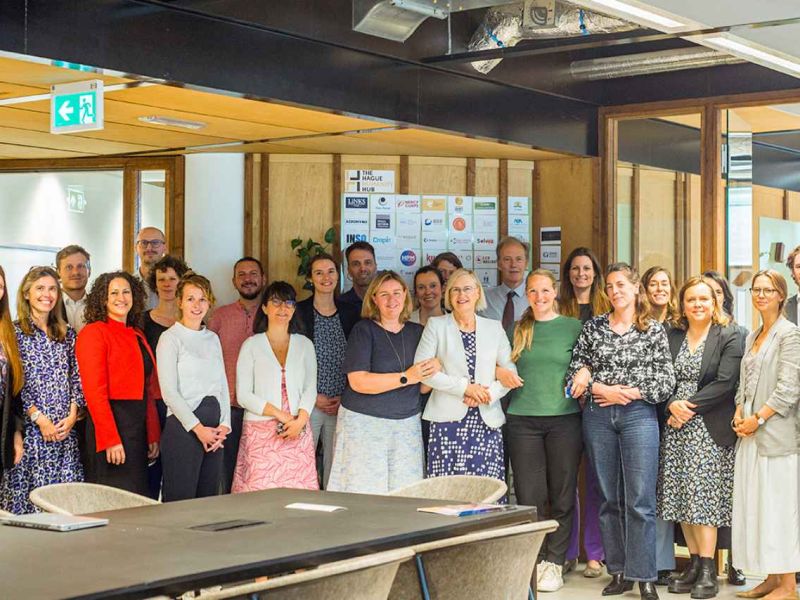
Lessons in humility and persistence
Spehar's journey in peacebuilding has taught her several valuable lessons. The first, she says, is humility. "We must realize that we are only one actor among many others," she notes. This humility extends to understanding where the UN can make a difference and where it might not be the best-suited actor.
Working on prevention and peace starts at home.
Her second lesson is the recognition that peacemaking and peacebuilding are arduous, non-linear processes. "A lot of times it’s one step forward, two steps back," she observes. Despite these challenges, Spehar remains steadfast in her belief that the UN’s role is not to unilaterally deliver peace but to assist countries in their own peace efforts. "We are outsiders. It is the country itself, the government, and the people themselves that deliver the peace," her third lesson.
Working on prevention and peace starts at home. Peacebuilding must be nationally grounded, and community based. However, we must hold countries accountable for their own issues. If a government is not following the universal declaration and international law, we must bring their actions to attention.
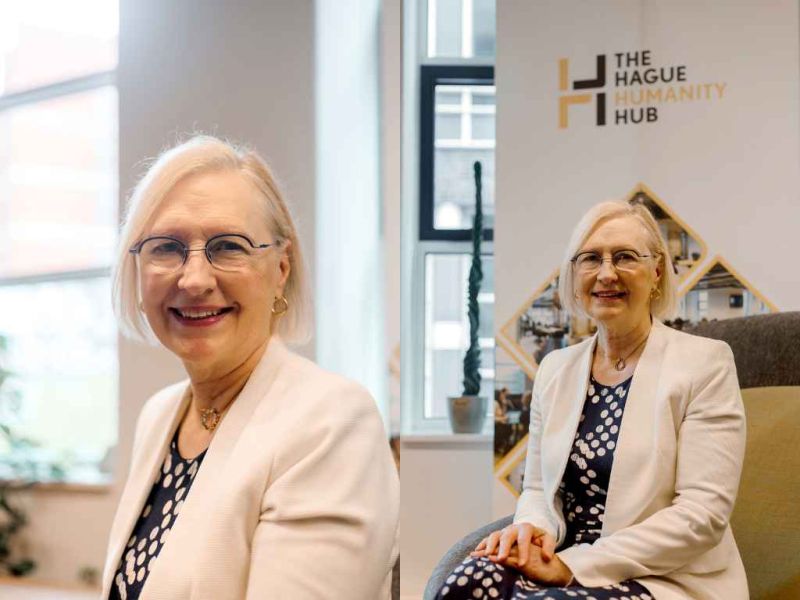
Navigating between structure and messiness
The complex nature of peacebuilding often requires navigating between the structured frameworks of the UN and the “messiness” of real-world conflicts. "Building and sustaining peace is not a science; it will never be a science," Spehar remarks. "Sometimes, it seems more like alchemy."
One of the most difficult elements to harness in this process is political will. According to Spehar, the right leaders at the right time are crucial for making progress, but civil society's involvement is equally essential to ensure that peace agreements are sustainable.
International solidarity is not only the right thing to do, but also the smart thing to do.
Spehar acknowledges the many challenges facing the international community today, particularly the growing trend of countries becoming more inward-looking. However, she remains committed to the idea that international solidarity and multilateralism are more important than ever. "Our Secretary-General has said, one of the key things right now is to rebuild international solidarity and strengthen multilateralism, because we’re all in this together."
This commitment to international solidarity is not just a moral imperative but also a practical one. “International solidarity is not only the right thing to do, but also the smart thing to do.” Spehar points to research from the UN and the World Bank, which suggests that every dollar invested in prevention can save sixteen dollars in the costs of conflict. "One dollar in, 16 dollars saved," she emphasizes, advocating for more empirical evidence to support the effectiveness of prevention and peacebuilding efforts.
Call for comprehensive approach to peace
In her concluding remarks, Spehar calls for a comprehensive approach to building and sustaining peace. "We need to comprehensively build and sustain peace through development, through dialogue, through human rights, through reconciliation, through resolving local disputes, through strengthening access to justice, through the rule of law. It all must come together."
Elizabeth Spehar’s journey is a testament to the UN’s ongoing commitment to peacebuilding and the significant, albeit challenging, role it plays in promoting global peace. Her insights serve as a reminder that while peacebuilding is complex and often fraught with setbacks, it remains an essential pursuit in the quest for a more just and peaceful world.


